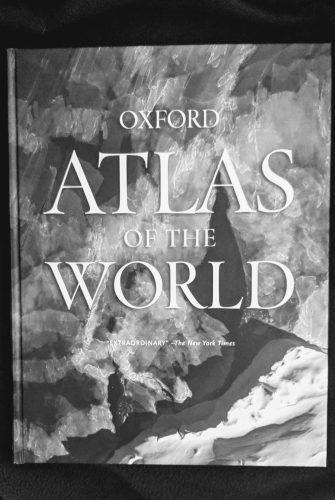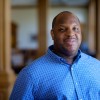This article is more than 5 years old.
The 27th Annual North Carolina Serials Conference was held at the Friday Center in Chapel Hill, and it was a great conference as always. The sessions were interesting, the speakers were engaging, and the topics spurred several ideas for a later time. Beyond these, however, were several features that I enjoyed at this year’s conference.
Keynote speakers. This year’s keynote speakers touched on disparate topics that had a broad connection. Dracine Hodges from Duke University, the morning’s keynote speaker, talked about the need to pursue diversity and inclusion in technical services work, while closing speaker Andreas Orphanides of North Carolina State University spoke about the need to design systems for humans and not the other way around.
As I mentioned previously, these topics may seem separate from each other, but they have a very subtle connection. Diversity and inclusion must contend with the reality of bias, and bias can render the data used to refine systems useless. In both cases, it is the responsibility of those involved to incorporate equity into their designs, whether in terms of needed resources or a review of all components.
Lightning talks. These brief sessions touched on the value of documenting the voices of diversity, ten-digit fund codes for assessment and reporting purposes, publishers and discovery partners working together to provide the necessary information to all users, and diversity programming at an academic library. As a member of our Diversity and Inclusion Committees, the last-named session was of interest as I considered possible steps for us as we continue our commitment here.
It’s always a reminder to me whenever I attend sessions like these no one institution has found all the answers, especially with an evolving topic like diversity and inclusion in libraries. It’s through this exchange of ideas that positive change can be explored.
Networking with LIS students. I’ve attended the Serials Conference in past years, but this is the first one where I could interact with current LIS students. These students were either in their second year or about to graduate, and this was their first time at this conference. (Several were even surprised that this conference existed.) Beyond checking about faculty who I knew and the classes they were taking, I had the chance for a bit of mentorship. I touched a little bit more on the nature of continuing resources and their complexities while encouraging them to do their own research if they found them interesting.
I also had to work in a plug for NASIG, which was a platinum sponsor at this year’s conference. I mentioned the free membership for library school students, the Student Spotlight Session, and of course the mentoring opportunities. One student joined that day, and others said that they would consider the chance to present at a future conference. I think they may be on their way to their next opportunities after library school!
Closing Thought. When I was a kid, I read almanacs, dictionaries, and encyclopedias whenever I could. I always wanted to have an atlas, and this wish came true thanks to a drawing by Oxford University Press. This was an unexpected bonus, and now I can satisfy those cartographic curiosities whenever they arise.


6 Comments on ‘Chris at the 27th Annual North Carolina Serials Conference’
Thanks, Chris! I want to hear more about designing systems for humans and not the other way around! And the D&I content from the conference sounds very interesting! I’ll ask you about it at the next D&I committee meeting! Thanks again for this post!
How cool that you won the almanac! Thanks for bridging the gap to the next generation graduates on the value and complexity of ongoing subscriptions. That mentorship is so helpful to new students. Good work!
Glad the conversations about D&I and technical services are becoming more mainstream.
So glad you got the opportunity to interact with LIS students, I’m sure they benefitted from your insights into our profession.
Great post! Congratulations on winning the atlas!
How wonderful that you not only had a productive day, but also capitalized on those opportunities to help the LIS students!